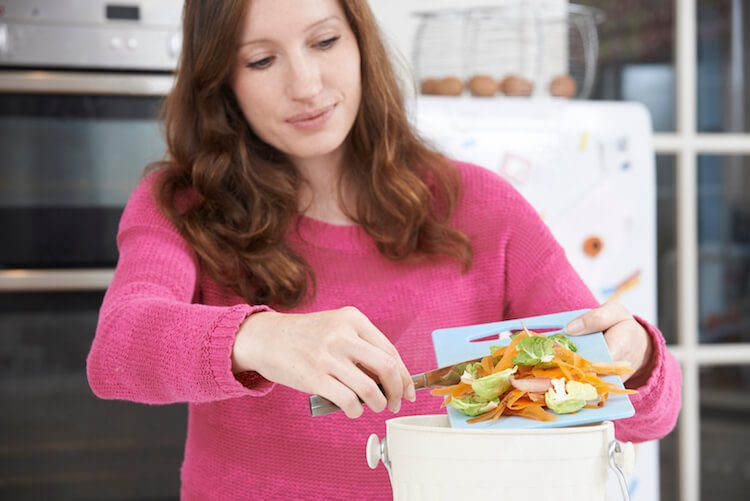As spring swings into summer, Boulderites are getting ready to show off their green thumbs in the lawn, flower bed, and garden.As spring swings into summer, Boulderites are getting ready to show off their green thumbs in the lawn, flower bed, and garden.
But before you start planting, there are some things you can do to make sure your soil is in shape for the season.
Fertilizing is one of the best ways to nourish your lawn and garden. And one of the best fertilizers is completely free, and comes out of your kitchen every day. We’re talking about compost.
Composting is all about taking advantage of the power of decomposition to create something called humus — a dark, dirt-like matter that is full of soil-strengthening nutrients like nitrogen.
A healthy compost pile has a combination of water, air, and matter that’s chock-full of carbon and nitrogen. Add in a little time and you’ve got a recipe for success — nature takes those ingredients and runs with them, resulting in a nutrient-rich product your garden will love.
Compost comes with a bevy of benefits, including:
- Fosters the growth of fungi and bacteria that are good for your soil health
- Healthy soil retains more moisture and allows your plants to grow stronger
- Compost-heavy soil fends off plant diseases and pests and reduces weed growth
- Organic material in the trash emits methane when it decomposes — composting the material lowers your carbon footprint
Not into gardening? You can still take advantage of the power of compost. You can add it to your potted plants indoors, or donate it to your neighborhood garden plot. Your city may also offer a curbside compost service.
Making healthy, rich compost relies on adding the right organic compounds. If you aren’t sure what can go in your compost or what belongs in the trash, you could end up ruining your compost pile and ultimately harming your soil instead of helping it.
Here’s a handy guide to help you learn what makes a happy, healthy compost pile, and what should be tossed into the garbage.
What Can You Compost
The following items are excellent additions to your compost pile.
Most vegetarian kitchen scraps
- • Vegetables and fruit
- • Anything that gets cut or peeled off produce before eating
- • Carrot ends, potato skins, banana peels, avocado skins, etc.
Grains
- Cooked pasta and rice
- Stale bread and breadcrumbs
- Old cereal and crackers
- Leftover pizza crusts
Paper (shredded or cut into small pieces)
- Plain paper
- Cardboard
- Paper bags
- Paper towel rolls
- Egg cartons
- Black & white newspaper
Lawn waste
- Grass
- Leaves
- Sawdust
- Dead plants
- Dirt
- Hay
- Flowers
Bathroom waste
- Toilet paper rolls (cut into pieces)
- Used tissues
- Hair and nail clippings
- Cotton balls (100% cotton only)
Vegetarian animal waste
- Manure from cows, rabbits, horses, and other vegetarian animals
- Feathers
Other
- Used coffee grounds and filters
- Used tea bags and loose leaf tea
- Crushed egg shells
What Should You Trash?
The following items are not compostable and should be put into the trash or recycled.
- Dairy products
- Meat/fish scraps
- Grease/fat from cooking
- Dog/cat/carnivore waste
- Citrus peels and onion and garlic scraps (chemicals in these can be bad for worms)
- Coated paper or paper printed with color ink
- Stickers from fruit or vegetables
- Large pieces of wood or cardboard — these take too long to break down, cut up into smaller pieces before composting
- Fire ash
- Synthetic fertilizers
- Diseased plants
Once you’ve got a healthy compost pile in the works, you can start using it to supplement the soil in your garden and beyond.
But adding in compost is just one of the ways you can prep your garden this spring.
Discover 6 simple steps to getting your garden ready before planting »


